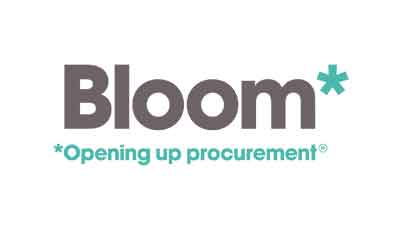As the Government progresses its ambitious COVID-19 recovery strategy, there is increasing pressure on the public sector to better manage its social value efforts and deliver positive outcomes for the people, communities and economies that need it most

Social value has climbed up the agenda for councils and public bodies in recent years. What was once a tick-box exercise is now considered a commercial imperative. A key driver for this shift was the introduction of the Social Value Act 2012, which urges public bodies to consider how procured services can improve the economic, social and environmental wellbeing of the area that falls within their remit.
While the act has been somewhat successful in its mission to improve how public money is spent, there are still many barriers to consider. As the nation moves through the recovery phase of the pandemic, how can local authorities ensure they are creating a sustainable local supply chain to deliver their services while stimulating much-needed local economic growth?
Investing in your local supply chain
By making substantive commitments to local spending, local authorities can deliver significantly more value for the public purse by supporting small businesses, creating employment opportunities, promoting social integration or delivering better access to training and education. All of this results in a thriving local economy that can clearly demonstrate sustainable growth.
The social and economic challenges of COVID-19 have only made the need for such outcomes more pertinent. As the country builds back from the crisis, local authorities must look to diversify their supply chains and proactively engage with their local economies to maximise the multiplier effect felt internally.
However, there are several core barriers that face the public sector when engaging with local supply chains. One of these barriers is the dependency on small and medium enterprises (SMEs) and voluntary, community and social enterprises (VCSEs) to meet the relevant eligibility criteria, and to have both the capacity and expertise to compete with larger providers in the procurement process. SMEs and VCSEs also often cite a lack of awareness and poor promotion of contract opportunities as a barrier, as well as a tendency for authorities to ‘stick with what they know’ by using larger national suppliers.
A unique solution for local government
Bloom Procurement Services offers a comprehensive solution to these challenges through its fully compliant open-access marketplace. Bloom has a proven track record in empowering the public sector to deliver on its social value goals, build a sustainable supply chain, and deliver measurable impact to local economies. A recently published Social Value Report for 2020 revealed that the procurement specialist awarded more than £97m worth of projects to local suppliers and successfully embedded more than £28.2m in social value activity within just 12 months.
Bloom’s OJEU-compliant, fully managed procurement service – covering specification development, supplier identification and onboarding, full-contract management, and lessons learned upon successful delivery of outcomes – is delivered through the innovative NEPRO³ framework. This one-of-a-kind solution allows buyers to move quickly and at the lowest possible cost, saving local authorities, on average, between 11% and 19% against budget.
For cast-iron assurance, each supplier onboarded goes through a robust and detailed accreditation process to verify their capability to deliver in the chosen category. To date, 88.9% of Bloom’s accredited suppliers are of SME status, with 9.19% of VCSE status.
Buyers also have the ability to select local suppliers to bid on contracts for large projects that exceed OJEU limits. Such contracts would typically go out to tender at a national level, where competition from national supply chains often excludes local SMEs and VCSEs. But by engaging with these local suppliers, public sector buyers can use their procurement spend to create a sustainable supply chain, reinvest into local economies and, ultimately, change lives for the better.